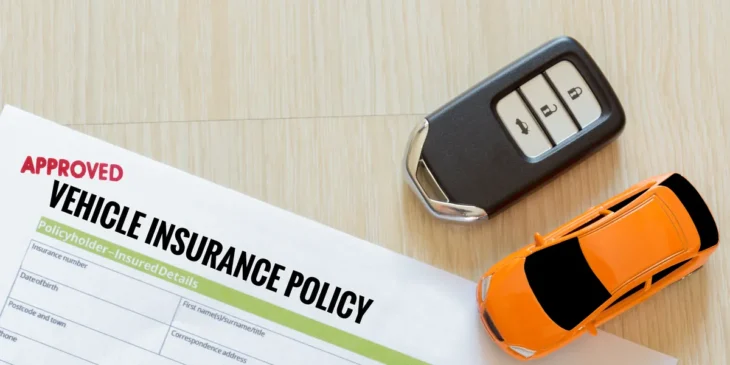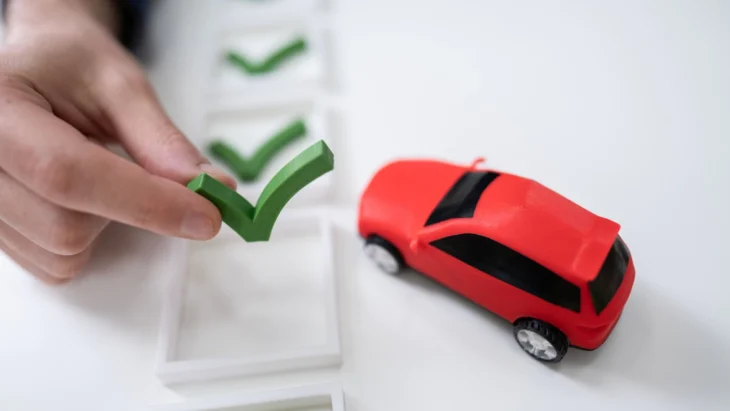There are some trends in the car insurance world that are common knowledge yet at the back of our minds. It’s no mystery that younger drivers pay more for car insurance and sports and muscle cars are more to insure, for example. A lot of these trends indicate the selling and pricing of car insurance. But there are trends in the insurance world that we really could do without or are in need of being updated. Some of these trends are estimated to take center stage sometime this year as the car insurance industry evaluates how it will approach them moving forward.
Contents
Car Insurance Pricing Discrimination

Source: caranddriver.com
The practice is becoming less frequent, but people shopping for insurance are still wary of things such as their credit score, gender, and even race affecting how much they will pay for car insurance. This practice is illegal in some states, but recent stats have shown that some companies charge more for people who have a zipcode of a dominantly black neighborhood. While using something such as a credit score to gauge financial reliability seems reasonable because insurance is all about making your payments on time, using something that a person can’t help, such as their sex or race, is just plain unfair. It is estimated that insurance regulators will address this issue by restricting this practice. A number of states have already outright banned it. If you would like to learn about where you can get cheap car insurance, click here for more information.
Factors That Affect Car Insurance Pricing
Naturally, how much anyone pays for car insurance is based on the car they wish to insure. But there are also several personal factors like age, credit score, and zip code that affect how much car insurance is. Some of these are fair assessments, like how younger drivers have less experience behind the wheel and are therefore riskier to insure. Zip Code can tell a lot about crime rates and traffic which affect how likely a policyholder is likely to file a claim. While these trends are likely to stay, the more discriminatory factors may be restricted within the next year.
More Bundling of Home And Car Insurance

Source: insuranceblogbychris.com
One of the most reliable insurance discounts in general out there is bundling homeowners’ and car insurance together with the same insurer. Car insurance companies like gg-insurance.com also specialize in homeowners’ insurance, and they love customer loyalty when someone picks them for all their insurance needs. It’s estimated that this year will see more agents and insurers pushing people to their bundle offers to offset insurance costs.
Benefits of Bundling Home And Car Insurance
Aside from the premium discount, there are other reasons why people choose to bundle their insurance. One reason would be the sheer convenience of reporting to just one agent and company for all your insurance needs. Another great benefit is having to only pay one deductible since it is all going to the same insurer. Lastly, if you find yourself filing several claims, the insurance company will be less likely to drop you. It’s no mystery why bundling can become an insurance trend this year.
1. Car Companies Will Sell Their Own Insurance

Source: insuranceblogbychris.com
Toyota is one of the major automakers who have just recently announced they would start selling their own car insurance. It seems like buying your car insurance along with a new car is becoming the future of car shopping –knocking out two birds with one stone. Automakers are hoping to take a technology-oriented approach to this, and the hope is that one day drivers can purchase car insurance on their dashboard screen. But as of now, car insurance from an automaker is nowhere near as reliable as those from companies solely dedicated to insurance.
2. Automakers Will Continue Eco-Friendly Efforts
With the rise of gas prices and auto inflation, automakers will continue to make strides toward regularly producing eco-friendly or electric vehicles to make fuel obsolete. But as we have seen, this is easier said than done. Electric vehicles, for example, cost more than standard fuel vehicles. But if the battery is taken care of, you will notice a decreased cost in maintenance. At the same time, they can also be subject to higher auto insurance premiums because of this. Fortunately, some insurers will cut you an environmentally friendly discount for insuring such a vehicle. The same discount is also available for homeowners with greenhouses with solar panels, for example. While it may be pricey, this is an insurance trend that we will see more of.
3. Telematic-Based Car Insurance Will Increase in Use

Source: waterstreetcompany.com
Let’s talk about car insurance becoming entirely technology-based as cars become more technologically advanced with the new navigation systems, sensors, and driving assistance programs. Telematics is a way of tracking car and driver activities. For drivers that use pay-per-mile car insurance and other such coverages, telematics plays a crucial role since it helps calculate how much they will pay for coverage. These devices are expected to become more precise, so there is likely to be a rise in their usage –especially with all the new makes and models of the 2020s.
Things to Keep in Mind About Car Insurance Trends
What should be understood about car insurance trends is that they can differ based on state, much like insurance in general. Premiums and requirements are different in each one. The good news is that how insurance companies give discounts and price their coverage is a consistent practice across the board. The essential thing that anyone shopping for insurance can do is pull several quotes from different insurance providers, both local and national. You can get a feel of how each of these companies is adapting to these trends in the industry. Usage-based auto policies are an example of a rising trend that insurers see more sales of. This coverage is more based on how much the policyholder drives, down to the exact mile. You can always find out more about what the insurance industry is experiencing by asking the agent, along with any discounts you qualify for. Smart car insurance shoppers tend to fall into these trends naturally.
